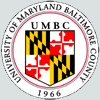| |||||||||||||||||||
Tips:  Range on the Protein: Protein ID Protein Position Domain Position:  No Conserved Features/Sites Found for Ufm1 No Conserved Features/Sites Found for Ufm1
|
|---|
Weblogos are Copyright (c) 2002 Regents of the University of California
| DMDM_info@umbc.edu | 1000 Hilltop Circle, Baltimore, MD 21250 | Department of Biological Sciences | Phone: 410-455-2258 |




 Ubiquitin fold modifier 1 protein. This is a family of short ubiquitin-like proteins, that is like neither type-1 or type-2. It is a ubiquitin-fold modifier 1 (Ufm1) that is synthesised in a precursor form of 85 amino-acid residues. In humans the enzyme for Ufm1 is Uba5 and the conjugating enzyme is Ufc1. Prior to activation by Uba5 the extra two amino acids at the C-terminal region of the human pro-Ufm1 protein are removed to expose Gly whose residue is necessary for conjugation to target molecule(s). The mature Ufm1 is conjugated to yet unidentified endogenous proteins. While Ubiquitin and many Ubls possess the conserved C-terminal di-glycine that is adenylated by each specific E1 or E1-like enzyme, respectively, in an ATP-dependent manner, Ufm1(1-83) possesses a single glycine at its C-terminus, which is followed by a Ser-Cys dipeptide in the precursor form of Ufm1. The C-terminally processed Ufm1(1-83) is specifically activated by Uba5, an E1-like enzyme, and then transferred to its cognate Ufc1, an E2-like enzyme.
Ubiquitin fold modifier 1 protein. This is a family of short ubiquitin-like proteins, that is like neither type-1 or type-2. It is a ubiquitin-fold modifier 1 (Ufm1) that is synthesised in a precursor form of 85 amino-acid residues. In humans the enzyme for Ufm1 is Uba5 and the conjugating enzyme is Ufc1. Prior to activation by Uba5 the extra two amino acids at the C-terminal region of the human pro-Ufm1 protein are removed to expose Gly whose residue is necessary for conjugation to target molecule(s). The mature Ufm1 is conjugated to yet unidentified endogenous proteins. While Ubiquitin and many Ubls possess the conserved C-terminal di-glycine that is adenylated by each specific E1 or E1-like enzyme, respectively, in an ATP-dependent manner, Ufm1(1-83) possesses a single glycine at its C-terminus, which is followed by a Ser-Cys dipeptide in the precursor form of Ufm1. The C-terminally processed Ufm1(1-83) is specifically activated by Uba5, an E1-like enzyme, and then transferred to its cognate Ufc1, an E2-like enzyme. No pairwise interactions found for the domain Ufm1
No pairwise interactions found for the domain Ufm1




